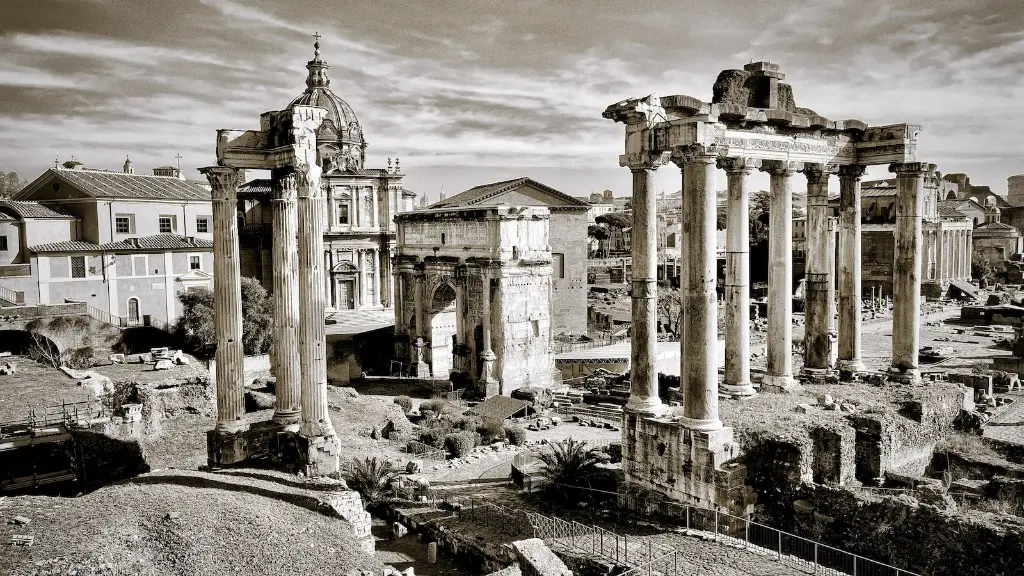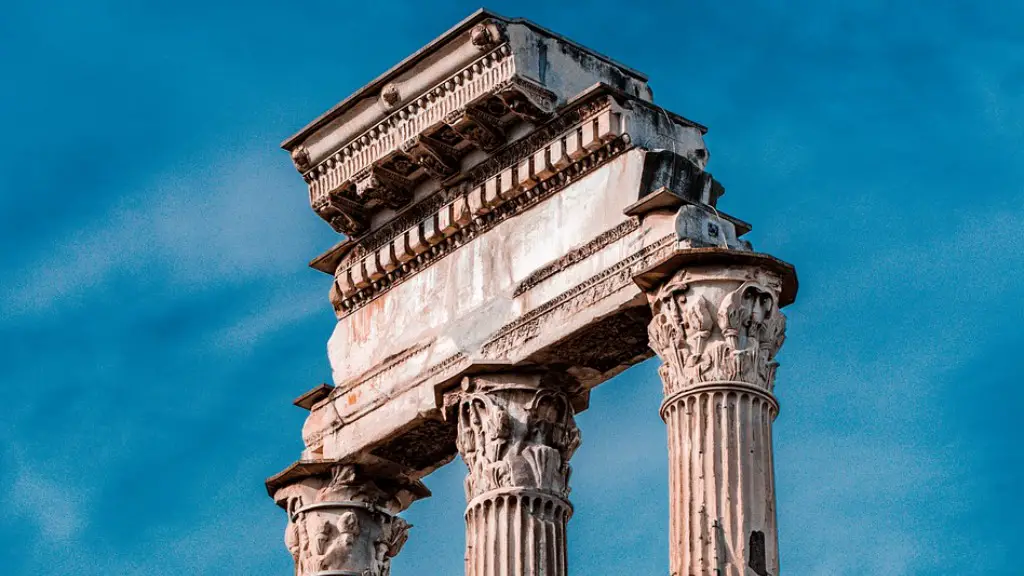Who were the Tribunes in Ancient Rome?
Tribunes were the fifth constitutional position in the Ancient Roman political system. They had the power to propose and pass laws, but perhaps most importantly, had the power to veto and reject any legislation proposed by the other branches of government. This power made the tribunes a unique and influential part of the Roman politics.
The office of a tribune emerged in the Roman Republic in the 6th century BC. Originally, the position was open to all patrician families. Over time, the role evolved and began to include plebeians. In the early Republic, the tribunes’ primary responsibility was to protect the rights of the plebeians, and fight against any actions that would limit the power of the common people.
The tribune was the highest-ranking plebeian in the society, and so they became a symbol of the plebeian class. They offered the plebeians a sense of unity and solidarity, and became a powerful political force. The tribune could stand against any decision made by the other branches of government – which included the Senate, the Curiate Assembly, and the Consuls – if the decision was mindad to be a violation of the rights of the people.
In order to keep the powers of the Tribunes in check, certain rules and regulations were enforced. These rules stated that the Tribunes could not raise taxes, declare wars, alter the system of government, or force citizens to serve in the army. The Tribunes had to have popular support in order to remain in office, and so any good or beneficial actions they did had to be recommended by the people.
The office of tribune had a tremendous impact on the Ancient Roman society. It was, in a sense, a safeguard of the rights of the people. It ensured that no matter what the ruling class wanted to do, the people could have a say in it and could not be taken advantage of.
The Tribunes and the Plebeians in Ancient Rome
The Tribunes and the plebeians formed the backbone of the Ancient Roman society. They were the ones who contributed and built the city, developing it from its inception to a powerful, respected city-state.
The tribunes and the plebeians formed a mutually beneficial relationship with one another. For the tribunes, they were able to gain more power and influence, while the plebeians gained the right to have their voices heard in the government’s decisions.
The tribunes used the plebeians’ support to leverage their own power in the Senate. Through their contentious ways, the tribunes gained stature in the eyes of the Senate, which more often than not had to comply with the tribunes’ wishes. The plebeians, in turn, were able to feel more secure about their rights and freedoms in the face of the Senate’s decisions.
This unique relationship between the Tribunes and the plebeians helped to shape and define the Roman Republic. The plebeians were no longer just a weak, disenfranchised group — they had a voice and their voice was heard. This gave them some power and ultimately, had a significant impact on the Roman political process.
The Impact of the Tribunes on Ancient Roman Culture
The office of tribune had a large impact on Ancient Roman culture. Not only did it provide the plebeians with a sense of solidarity and power, but it also began to shape the way that Ancient Rome was governed.
In the beginning of its development, the Roman Republic was a chaotic experience, where decisions were made by a handful of elites and there was little room for the public to have their say. However, with the emergence of the tribunes, the people finally had a say in the government’s decisions, and this began to shape the way that Rome would ultimately be governed.
The tribunes also established the ideology of equality and justice in the eyes of the law. They protected the rights of the people, and made sure that the government could not act in a biased manner. This provided a sense of safety and fairness, and allowed the Roman Republic to develop into a more structured and organized system of government. As a result, Roman culture began to thrive, and it became one of the most powerful empires in the ancient world.
How did the Tribunes Influence Roman Laws?
The influence of the tribunes on the laws of Ancient Rome was immense. In addition to having the power to veto any laws proposed by the other branches of government, the tribunes also proposed their own legislation.
The tribunes’ primary concern was the protection of the rights of the people. Therefore, many of the laws that were proposed were aimed at expanding the rights and liberties of the plebeians. Some laws proposed by the tribunes included the laws of debt relief, land redistribution and the institution of annual elections.
These laws aimed to make the Roman Republic more just, and allowed the people to have more say in the decisions of their government. By proposing and passing these laws, the tribunes gave the people of Ancient Rome a voice in their own affairs and the chance to have their grievances addressed.
How did the Tribunes Influence Warfare in Ancient Rome?
The Tribunes had a significant influence on the way warfare was conducted in Ancient Rome. They had the power to veto any decision that they felt was not in the people’s best interest, including the mobilization of troops for war. This gave the Tribunes significant influence over the Roman military decisions.
The Tribunes could, for instance, veto any plan to launch a war, propose alternative military strategies or even delay a Roman army’s march. This power enabled the Tribunes to shape the way that Ancient Rome went to war.
Furthermore, by having the power to influence Roman military decisions, the Tribunes could also influence the outcome of any battle or conflict. Through their veto power, they could prevent the Roman military from engaging in any strategy that was deemed to be too risky or too reckless. This allowed the Tribunes to protect the interests of the people in any situation and ensured that the Roman military was kept in check.
How did the Tribunes Influence Trade in Ancient Rome?
The Tribunes had an enormous impact on the trade and economy of Ancient Rome. The Tribunes had the power to propose laws that affected the way that trade was conducted. They could, for instance, pass laws that lowered taxes, lowered tariffs, imposed regulations on certain goods and services, and even imposed limits on certain types of trade.
Through these laws, the Tribunes could influence the way that merchants and traders conducted their business. They could also influence who had access to certain goods and services and how much those goods and services cost. This had a tremendous impact on the Roman economy, allowing it to grow and flourish.
Additionally, the Tribunes could also influence the way that foreign trade was conducted. For instance, they could impose tariffs or restrictions on imported or exported goods. This allowed them to regulate the flow of goods and services between Rome and its foreign trading partners.
Conclusion
The office of tribune was one of the most influential positions in Ancient Rome. They had the power to propose and pass laws, veto any legislation proposed by the other branches of government, and shape the way Roman culture, economy and warfare were conducted.
The Tribunes provided the plebeians with a sense of solidarity and strength, and gave them assurance that their rights would be protected. Consequently, they began to shape the way that Ancient Rome was governed, introducing laws that aimed to make things fairer and more just.
The Tribunes’ influence on the Roman Republic was immense. They were able to influence the laws, the politics, and the economy of the Roman Republic. Ultimately, the Tribunes had an enormous impact on the way Ancient Rome functioned and the way it developed.

